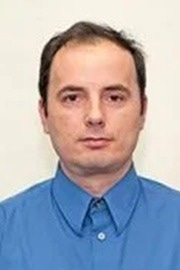Pittcon’s professional quality online Short Courses are an affordable opportunity for continuing education. All courses count towards building your Professional Hours. Courses take place on Wednesdays, 1:00-3:00 PM EST.
Course level: Intermediate
This hands-on course teaches step-by-step techniques for interpreting mass spectrometric data to identify molecular structures. Participants will learn elemental composition analysis, tandem MS interpretation, database use, and confidence level reporting, with a focus on manual (“pencil and paper”) methods. Real-world problems from CASMI and the Lockdown Challenge will highlight common pitfalls and effective strategies. Emphasis is on soft ionization and low-mass compounds (<400 Da), with examples from both natural and synthetic molecules. A take-home problem set will be provided for continued practice. Bring a pencil—let’s solve some spectra!
Who Should Attend This Course?
Students and professionals working in the fields that require compound identification using mass spectrometry, across fields such as natural products, environmental and forensic sciences.
Learning Objectives:
At the end of the course, students will be able to:
1. Confidently determine elemental composition from MS data
2. Propose a reasonable structure from tandem mass spectral data
3. Understand origins of major fragment ions in tandem mass spectra
4. Assign confidence in the structure proposal and understand limitations of MS for structure elucidation
About the Course Instructor
Dejan Nikolic is a Research Associate Professor in the Department of Pharmaceutical Sciences, College of Pharmacy, UIC. His research interests include structure elucidation of natural products using mass spectrometry, determination of ADME properties of plant ingredients and development of new assays for drug discovery from plant sources. For the past several years he has been actively involved in the Critical Assessment of Small Molecules Identification (CASMI) initiative aimed at unbiased assessment of different approaches used in structure elucidation by mass spectrometry. He has authored and co-authored more than 100 publications and trained numerous undergraduate and graduate students both through classroom and hands-on training.
His research interests include structure elucidation of natural products using mass spectrometry, determination of ADME properties of plant ingredients and development of new assays for drug discovery from plant sources. For the past several years he has been actively involved in the Critical Assessment of Small Molecules Identification (CASMI) initiative aimed at unbiased assessment of different approaches used in structure elucidation by mass spectrometry. He has authored and co-authored more than 100 publications and trained numerous undergraduate and graduate students both through classroom and hands-on training.